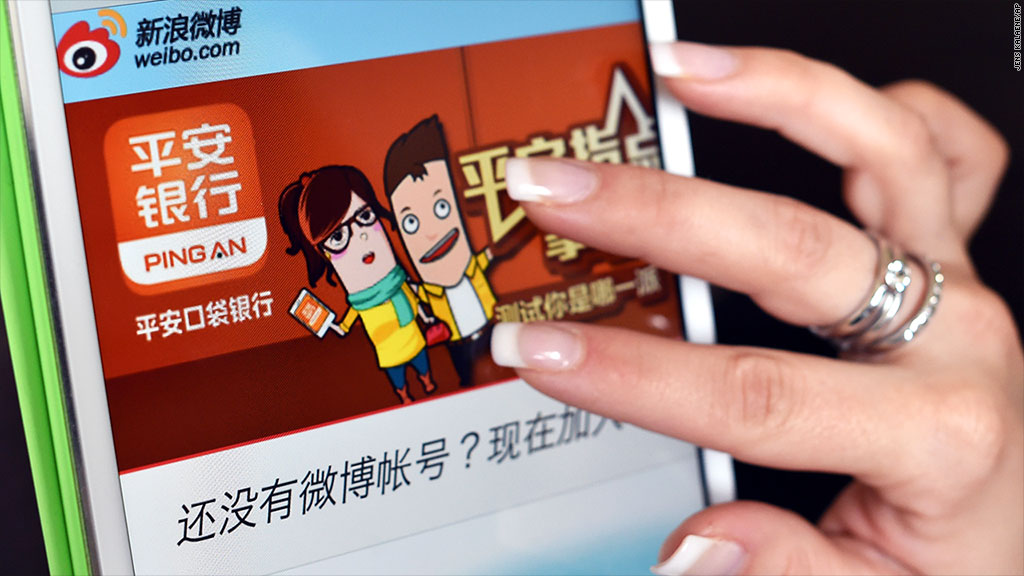
Weibo shares rallied on the first day of trading Thursday, in what could be a positive sign for other Chinese technology companies hoping to list on the U.S. market.
The Chinese social media company, which is often compared to Twitter (TWTR), priced its initial public offering late Wednesday at $17 per share. That was on the lower end of its price range and raised concerns about how it would trade today.
The stock, which trades on the Nasdaq under the symbol "WB (WB)," rose to a high of $24 a share in the afternoon, though ended the day at just over $20.
The deal is being closely watched as a gauge of investor demand ahead of the anticipated IPO of Alibaba, the giant Chinese e-commerce company.
Related: Here comes the Chinese stock invasion
Given the recent turmoil in technology stocks, Weibo appears to have been a tough sell for the deal's underwriters, including Goldman Sachs (GS) and Credit Suisse (CS).
The offering size was reduced to 16.8 million shares from the 20 million it initially hoped to sell. The stock of U.S. depository shares was priced the low end of the expected range of $17-$19 a share.
The deal raised $286 million for Weibo, which has a market value of about $3.6 billion at the current share price.
Weibo, which claims to have 130 million active users, lost nearly $48 million in the first quarter. That was about double what it lost in the same period last year. The company generated $183 million in revenue in 2013, but there's concern it's past its peak.
Weibo was not the only Chinese internet company making its stock market debut Thursday.
Leju Holdings, an online real estate service that operates in 250 cities across China, began trading on the New York Stock Exchange.
The company priced its offering of 10 million U.S. shares at $10 apiece. The stock, which trades under the symbol "LEJU (LEJU)," finished the day up almost 19%.
The IPO market has been on a tear this year, though there are signs the boom may be slowing.
Related: Biggest week for IPOs in 8 years
According to IPO research firm Renaissance Capital, 64 companies went public in the first quarter, the most active first quarter since 2000.
But there have been some notable flops recently. King Digital Entertainment (KING), maker of the popular Candy Crush Saga video game, saw its shares drop 15% on its first day of trading last month. The stock has yet to trade above its offering price.
The IPO market is strongest when volatility is low and stock valuations are high. But trading has been particularly choppy in recent weeks as prices for many high-flying technology stocks have come tumbling down.
The biotechnology sector has been particularly unsettled, which is sending a chill through the IPO market.
Shares of many of the biotech and pharmaceutical companies that went public earlier this year are now trading well below the offer price, including Biocept (BIOC), uniCure (QURE) and Galmed Pharmaceuticals (GLMD).


